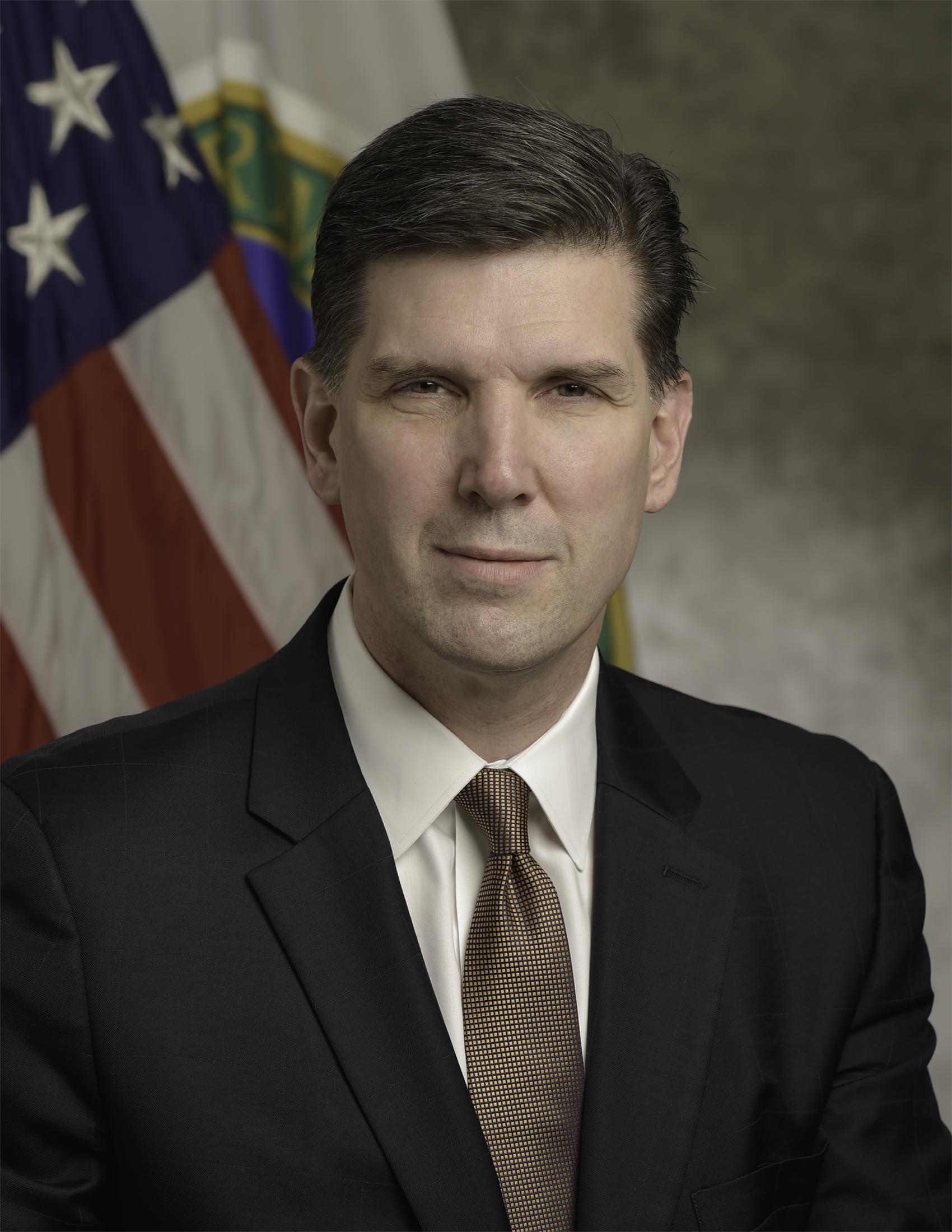The Office of Nuclear Energy works to engage all—all ages—all populations—to understand more about nuclear energy.
March 25, 2019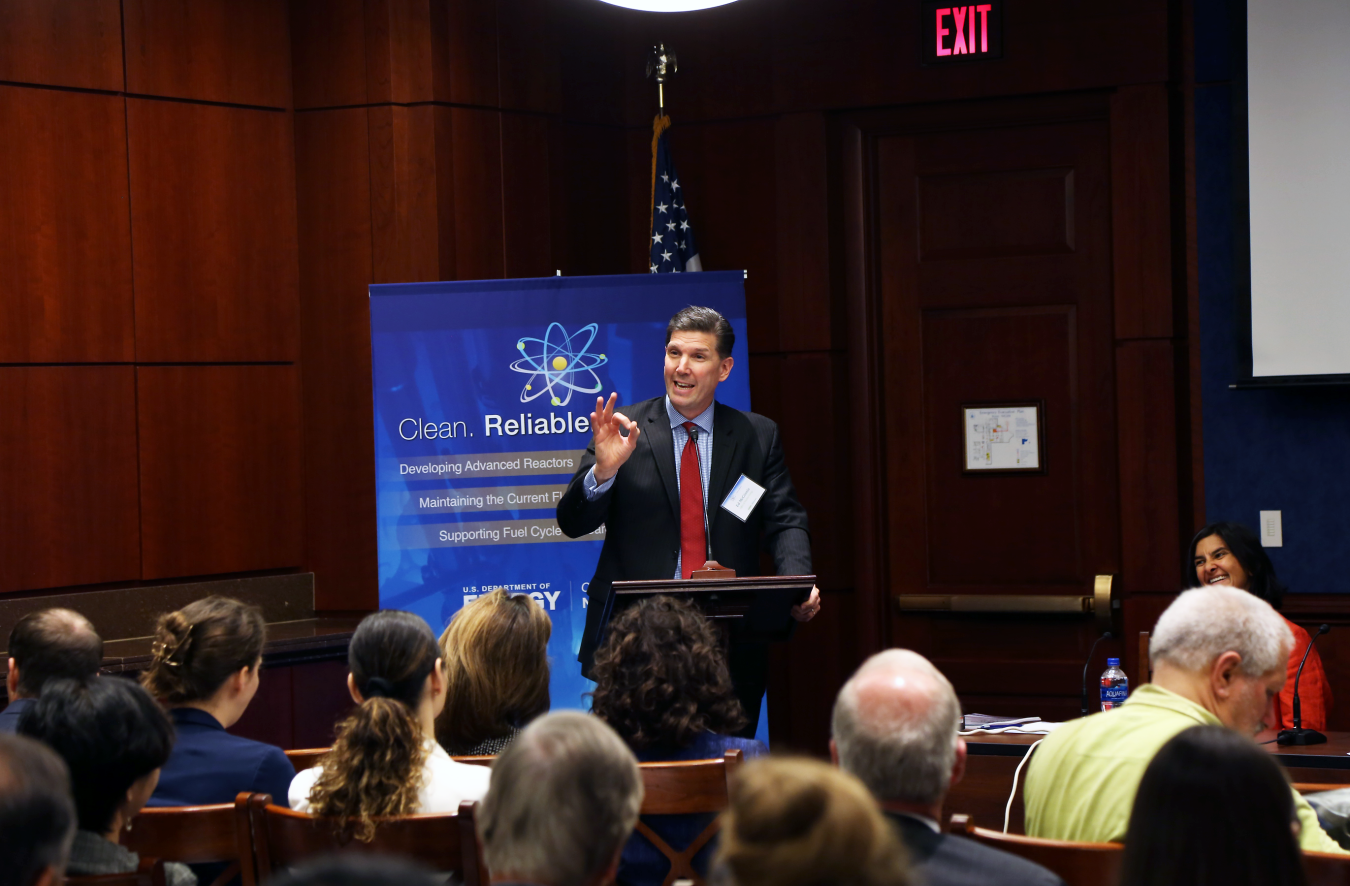
Who and What? The Office of Nuclear Energy works to engage all—all ages—all populations—to understand more about nuclear energy. For our younger students, we have partnered with the American Nuclear Society and Discovery Education Network to infuse nuclear education into formal and informal settings. Navigating Nuclear: Energizing Our World is a new, dynamic, standards-aligned program that invites students to explore the many applications of nuclear science and its impact on energy, healthcare, food, and the environment.
Supporting inspired and engaged students at the next level, the Office of Nuclear Energy invests in the next generation of nuclear energy leaders and advancing university-led nuclear innovation through our Nuclear Energy University Program (NEUP). NEUP Scholarships and Fellowships enable students to acquire funding to help pay for a degree in nuclear engineering.
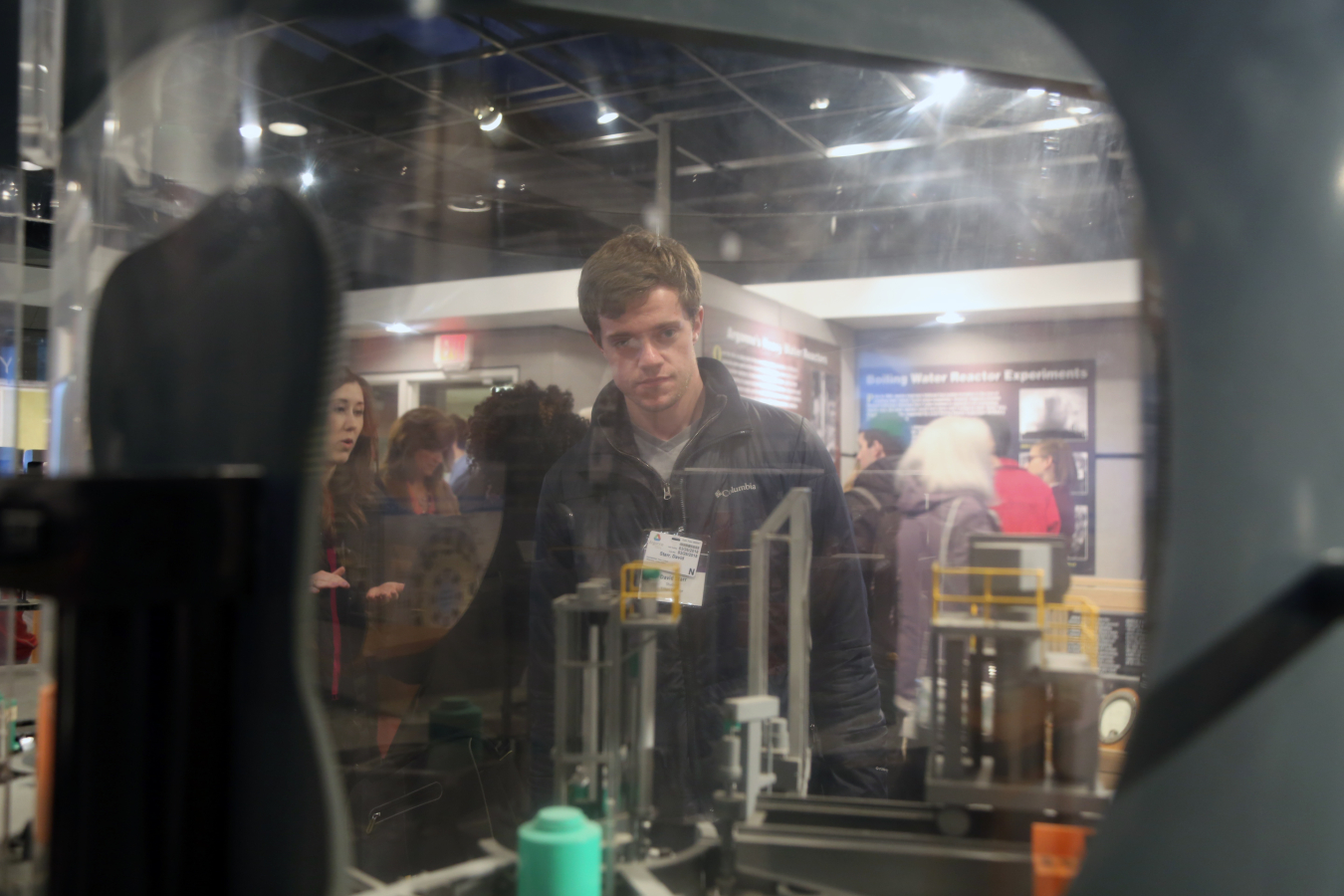
The Millennial Nuclear Caucuses are a series of events that bring together the next generation of leaders in nuclear innovation. They feature discussions on the path forward for the nuclear industry and the role innovative technology will play. Participants at the events represent the full spectrum of the nuclear field, including young leaders supporting the existing fleet, those designing small modular and advanced reactors, and those advocating for a thriving nuclear future. We encourage all young people interested in nuclear energy, advanced science and technology solutions, or the future of clean energy to attend and join in the conversation. We all have a stake in the future of nuclear!
It is vital to continue to educate for a STEM-literate (and nuclear-literate) society. The Atomic Wings Lunch and Learn is a monthly bi-partisan educational Capitol Hill outreach initiative developed by our office for Members of Congress, Hill Staff and Industry. Topics have included Small Modular Reactors, private-public partnerships, microreactors, economics, how nuclear powers space travel, and jobs in nuclear energy.
The Nuclear Energy Tribal Working Group is a DOE-chartered working group that serves tribes which are interested in or impacted by the broad spectrum of DOE nuclear energy activities. One of the working group’s major efforts was to address the issue of inadequate STEM opportunities for native youth through the creation of a white paper to highlight the gaps and offer recommendations for increasing STEM education in Indian Country. The Nuclear Energy Tribal Working Group white paper presents the main priorities in regard to STEM education including nuclear energy education for students, integration of place-based “Traditional Ecological Knowledge” with DOE mission-focused STEM content, awareness of career opportunities for Native Americans and workforce needs for DOE, and incorporation of a strategy for tracking data from programs to gauge Native American participation and program success.
We invite YOU to be “all in” for STEM with Nuclear Energy! You can stay apprised of all of these events as well as those across the DOE complex by subscribing to the DOE newsletter for STEM Rising-- subscribe to the newsletter here.
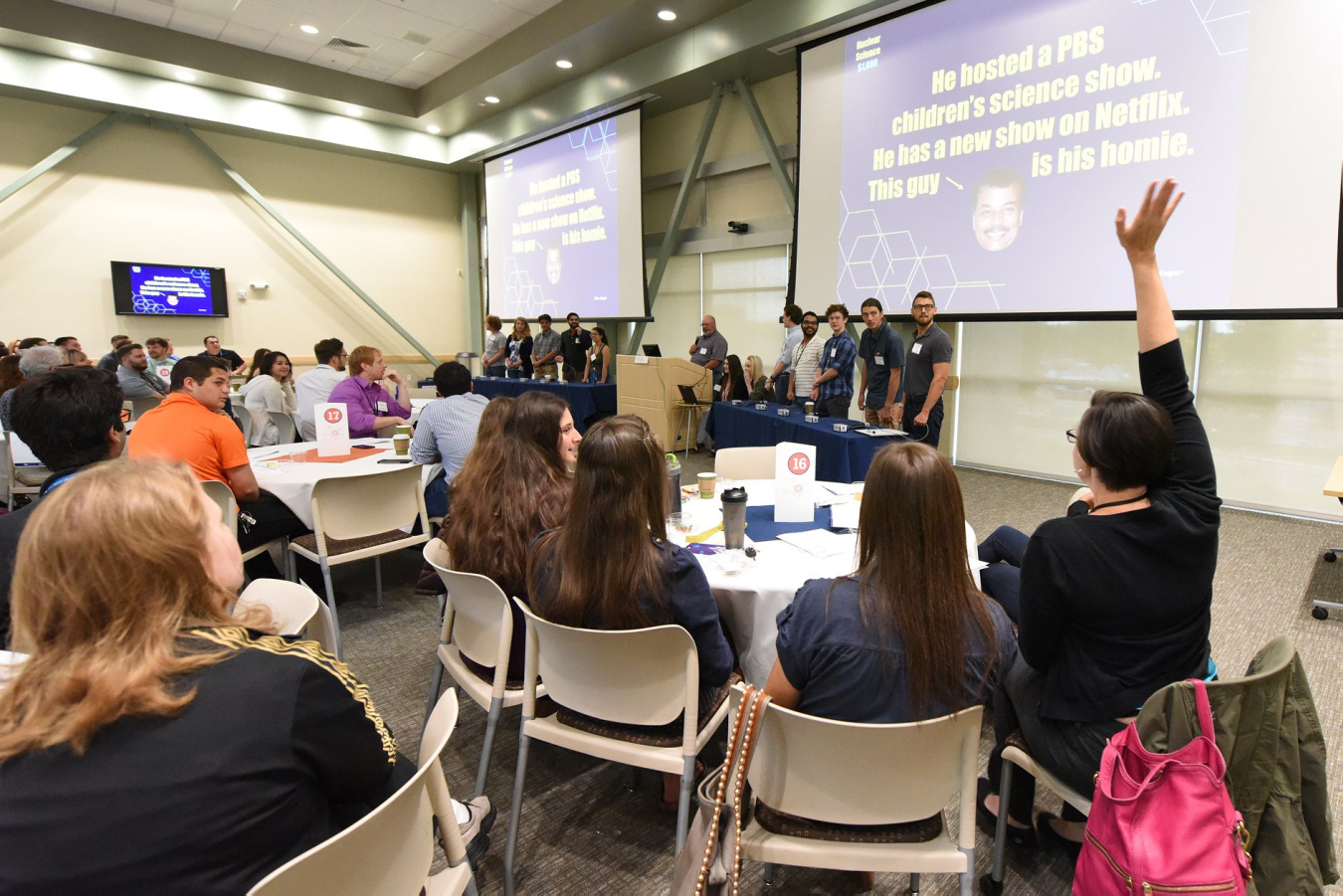
Edward McGinnis
Edward McGinnis was formerly the acting Assistant Secretary for the Office of Nuclear Energy. Prior to that role, he served as the Principal Deputy Assistant Secretary for Nuclear Energy and the Deputy Assistant Secretary for International Nuclear Energy Policy and Cooperation. As Deputy Assistant Secretary, he was responsible for the Department of Energy's international civilian nuclear energy activities, including international nuclear energy research, development and demonstration cooperation, multilateral nuclear energy cooperation, international nuclear energy policy, international nuclear safety cooperation, and advocacy for U.S. civil nuclear exports and industry. As part of these responsibilities, Mr. McGinnis served as Steering Group Chairman of the International Framework for Nuclear Energy Cooperation that consists of more than 65 countries and 4 international organizations. He also served as the Departmental Representative in the U.S. interagency for civil nuclear energy trade and promotion. Mr. McGinnis has also served as a Vice Chairman and Principal U.S. Representative to the Generation IV International Forum and was responsible for U.S. domestic nuclear fuel assurance matters, including technical oversight activities regarding the United States Enrichment Corporation, uranium inventory management matters, as well as U.S. nuclear energy security matters.
Prior to working in the Office of Nuclear Energy, Mr. McGinnis led a number of other high-priority U.S. government initiatives at DOE, including having served as the senior director for the Office of Global Radiological Threat Reduction where he managed global operations involving the search, recovery, security, and disposal of high-risk radiological and nuclear sources in cooperation with over 40 countries, including within the United States. These activities included recovery of high-risk radiological sources from Iraq, establishment of a Global Radiological Regional Partnership Program, and the first-of-its-kind repatriation of high-risk U.S.-origin plutonium-239 sources. Mr. McGinnis also established and served as the director of the Nuclear and Radiological Threat Reduction Task Force, which was created to carry out a number of key Secretarial national security initiatives, including the development of a global nuclear materials removal and research reactor security study that included the identification of nuclear research reactors throughout the world by level of vulnerability and an action plan to effectively mitigate such vulnerabilities.
Mr. McGinnis also served as senior advisor and special assistant to four Assistant Secretaries and Deputy Administrators for nonproliferation and national security at the Department of Energy where he served as a senior advisor for all aspects of the Department's nonproliferation missions, including nonproliferation research and development, materials protection, control and accounting, and warhead security.
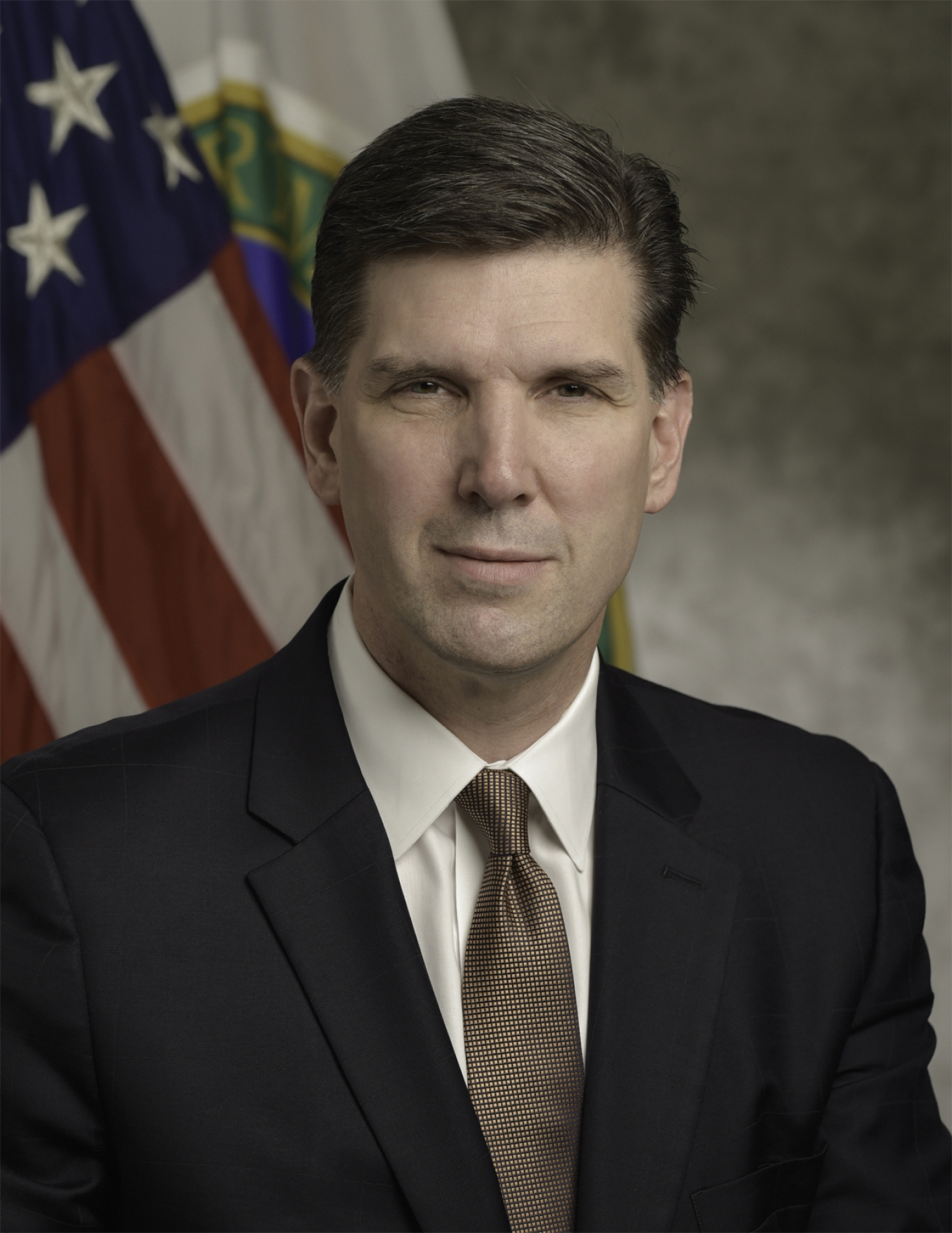
Edward McGinnis is the acting Assistant Secretary for the Office of Nuclear Energy. The Office is responsible for conducting research on current and future nuclear energy systems, maintaining the government’s nuclear energy research infrastructure, establishing a path forward for the nation’s spent nuclear fuel and high-level nuclear waste management program, and a host of other national priorities.
Prior to this role, he served as the former Principal Deputy Assistant Secretary for Nuclear Energy and the Deputy Assistant Secretary for International Nuclear Energy Policy and Cooperation. As Deputy Assistant Secretary, he was responsible for the Department of Energy's international civilian nuclear energy activities, including international nuclear energy research, development and demonstration cooperation, multilateral nuclear energy cooperation, international nuclear energy policy, international nuclear safety cooperation, and advocacy for U.S. civil nuclear exports and industry. As part of these responsibilities, Mr. McGinnis served as Steering Group Chairman of the International Framework for Nuclear Energy Cooperation that consists of more than 65 countries and four international organizations. He also served as the Departmental Representative in the U.S. interagency for civil nuclear energy trade and promotion. Mr. McGinnis has also served as a Vice Chairman and Principal U.S. Representative to the Generation IV International Forum and was responsible for U.S. domestic nuclear fuel assurance matters, including technical oversight activities regarding the United States Enrichment Corporation, uranium inventory management matters, as well as U.S. nuclear energy security matters.
Prior to working in the Office of Nuclear Energy, Mr. McGinnis led a number of other high-priority U.S. government initiatives at DOE, including having served as the senior director for the Office of Global Radiological Threat Reduction where he managed global operations involving the search, recovery, security and disposal of high-risk radiological and nuclear sources in cooperation with over 40 countries, including within the U.S. These activities included recovery of high-risk radiological sources from Iraq, establishment of a Global Radiological Regional Partnership Program, and the first-of-its-kind repatriation of high-risk U.S.-origin plutonium-239 sources. Mr. McGinnis also established and served as the director of the Nuclear and Radiological Threat Reduction Task Force, which was created to carry out a number of key Secretarial national security initiatives, including the development of a global nuclear materials removal and research reactor security study that included the identification of nuclear research reactors throughout the world by level of vulnerability and an action plan to effectively mitigate such vulnerabilities.
Mr. McGinnis also served as senior advisor and special assistant to four Assistant Secretaries and Deputy Administrators for nonproliferation and national security at the Department of Energy where he served as a senior advisor for all aspects of the Department's nonproliferation missions, including nonproliferation research and development, materials protection, control and accounting, and warhead security.
Mr. McGinnis holds a master's degree from The American University's School of International Service in Washington, D.C., and is a graduate of the Kennedy School's Senior Executive Fellows Program as well as the Program for Senior Executives in National and International Security at Harvard University.


